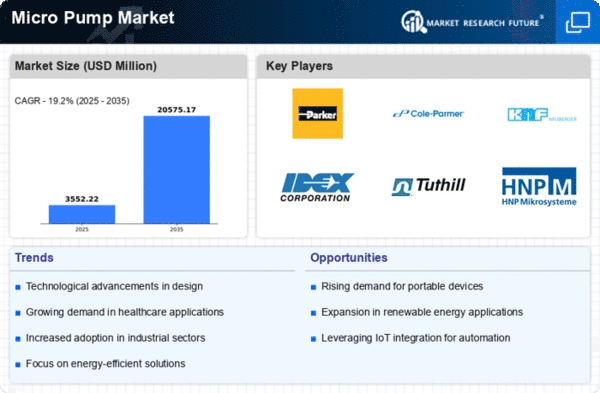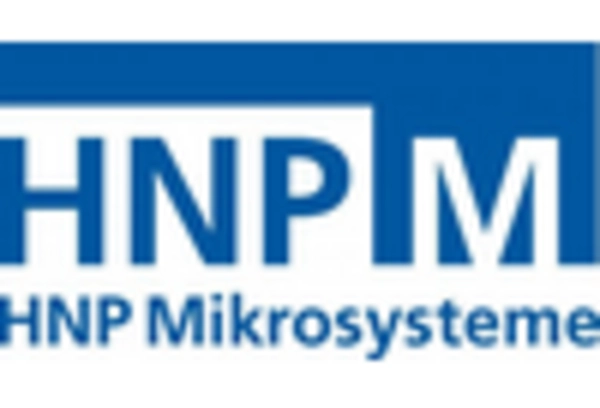Market Share
Micro pump Market Share Analysis
Unprecedented Surge in Global Point of Care Testing Fuels Micropump Demand
The global landscape of point of care testing (POCT) is undergoing a significant transformation, spurred by evolving lifestyles, an aging demographic, and the escalating prevalence of chronic diseases. POCT, a methodology involving diagnostic tests conducted in close proximity to the patient, is gaining widespread prominence for its ability to deliver immediate results outside the traditional laboratory setting. In this paradigm shift, micropumps have emerged as pivotal components in fortifying point of care services.
Micropumps, encompassing diaphragm pumps, peristaltic pumps, and syringe pumps, have become staples in research-oriented POCT devices. These pumps, renowned for their precise flow rate control, play a pivotal role in enhancing the accuracy and efficiency of diagnostic processes. A prime illustration is the peristaltic pumps crafted by Takasago Electric Inc., which offer a downsized iteration of laboratory pumps, featuring tubing as the sole wetted material. Conversely, micro-fabricated rotary displacement pumps, with their capacity for direct integration into fluidic cartridges, boast attributes such as compact dimensions, substantial flow rates, and extensive pressure ranges. However, their widespread adoption is hindered by complexities, elevated costs, and heightened power requirements, particularly in the context of practical POCT applications. The integration of pumps into detection instruments may further restrict the applicability of these devices for home care or field use.
POCT, rooted in microfluidic technology, is poised for remarkable growth, forecasting an ascent from USD 415.9 million in 2015 to an estimated USD 2,722.1 million by 2024, indicating a noteworthy CAGR of 20.4% during the forecast period. The trajectory of this growth is intrinsically linked to the evolution and widespread acceptance of clinical tests facilitated by microfluidic pumps. These pumps, serving as indispensable enablers, are anticipated to be key drivers in the ongoing revolution of point of care diagnostics. As this paradigm continues to redefine the contours of healthcare delivery, micropumps stand at the forefront of innovation, contributing to the efficiency and precision of diagnostic procedures across diverse settings and ultimately ushering in improved patient outcomes.



















Leave a Comment